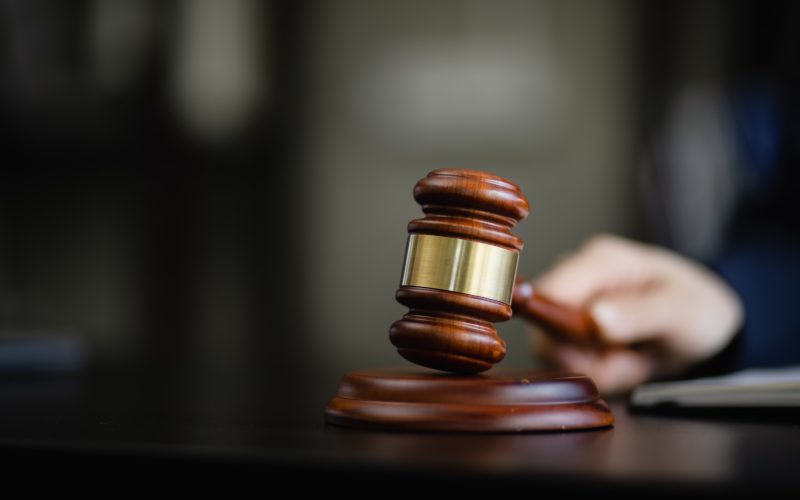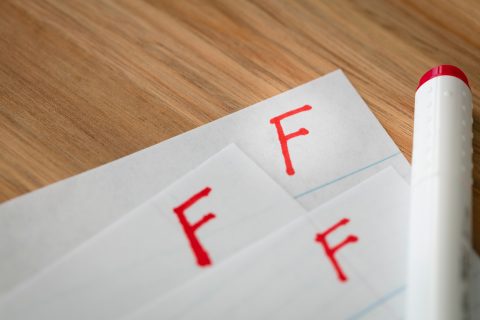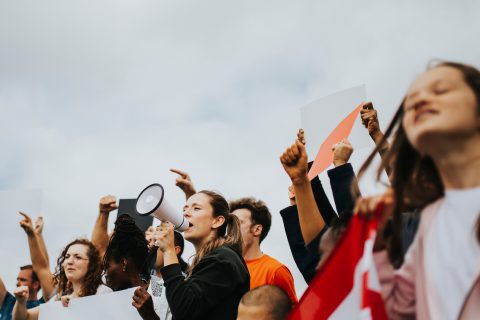When it comes to prosecuting Jan. 6 cases, maybe we should take a top-down approach and not bottom up. Linda Kinstler is a visiting researcher at Georgetown University and a junior fellow at Harvard. She joins host Krys Boyd to discuss the idea of “oblivion,” allowing society to forgive low-level offenders in order to heal a fractured society. Her recent essay in The New York Times is “Jan. 6, America’s Rupture and the Strange, Forgotten Power of Oblivion.”
Is it necessary to forgive and forget Jan. 6?
By Sophia Anderson, Think Intern
Linda Kinstler spoke to Think listeners about the concept of oblivion, a term coined by Cicero to refer to the reconciliation of Athenians and Thirty Tyrants in 403 BCE. Oblivion was the process by which a society moved on from a greatly disruptive event, in this case, the rule of the Thirty Tyrants over Athens.
Kinstler is a junior fellow at the Harvard Society of Fellows and author of “Come to This Court and Cry: How the Holocaust Ends.” She wrote an article on oblivion for the New York Times Magazine, titled “Jan. 6, America’s Rupture and the Strange, Forgotten Power of Oblivion.”
She told Think that when Athenians took back control, they “swore never to remember” the period of chaos, which really meant restoring Athens to its prior state and allowing the tyrants to choose between exile and prosecution.
The United States has also had to confront the concept of oblivion. After the Revolutionary War, the new US government treated Loyalists who hadn’t fought in the British Army with relative mercy, and the Ford Administration considered America’s history of “oblivion” laws when allowing partial amnesty for Vietnam War draft dodgers.
Oblivion wasn’t feasible in the Reconstruction Era, however, and largely failed because the government failed to make reparations to people who had been enslaved. How were the newly emancipated people expected to reconcile with neighbors who might have been fighting to keep them enslaved? And how could they repair the pain of the past without a physical home to start their future?
When it comes to the aftermath of the Jan. 6th attack on America’s capitol, Kinstler does not actually recommend enacting oblivion. Because she lives in D.C., Kinstler has, in some capacity, watched people being prosecuted for the insurrection every day in the district court. But she noticed the marked absence of Donald Trump, who many hold responsible for the entire concept of the insurrection.
“We had this opportunity, we had this plan, to pursue the prosecution of the former president, who, bears a lot of the responsibility, primary responsibility for what happened that day and to the profound threat that our government faced,” Kinstler said. “And yet he wasn’t there. His trial has been held up.”
Kinstler argues that a real reckoning, and therefore a true healing, can only come when people are held responsible for Jan. 6. And right now, the legal penalties are largely falling to individuals who were present at the Capitol, violent and nonviolent, but not involved in orchestrating the event itself.
These prosecutions are distracting, satisfying on a small scale, but ultimately have no impact on how the country operates moving forward. The way we move forward from Jan. 6 depends on the end goal we have in mind. The president and former president have proclaimed different visions. President Biden acknowledged the prosecution of offenders, but emphasized the importance of moving forward without vengeance. Trump denies involvement and has sworn to pardon those on trial for the insurrection. The realistic future is likely somewhere in between the two approaches. Justice, when served, doesn’t come on a silver platter.
In a 2023 poll, 54% of respondents said that Jan. 6 was an attack on democracy and 54% said it should never be forgotten. It’s hard to imagine forgetting Jan. 6, but individuals may find their way to forgiveness – those that think there is something to forgive in the first place, that is.
“I’m not at all saying that there should be an act of oblivion for January 6th,” Kinstler said. “But rather suggesting that if we think really hard about the history of how not only our country, but many other nations [and] many other cities have chosen to move past similar moments of crisis, that it might allow us to kind of think harder and more deeply about what these prosecutions actually mean in public.”





